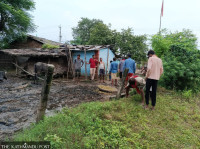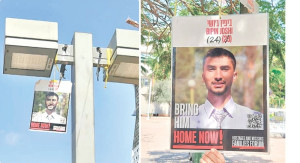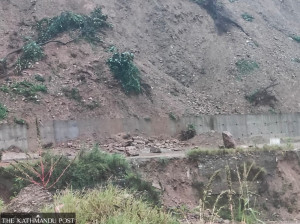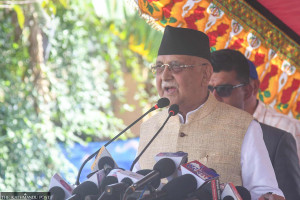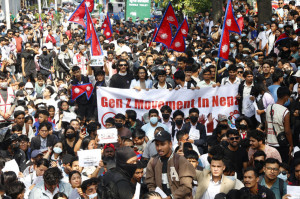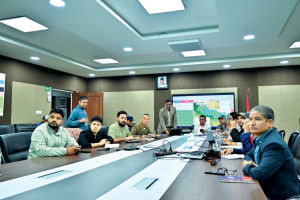National
Government deadline for total literacy likely to be pushed yet again
Since 2008-09, governments have spent nearly Rs 12 billion on several literacy campaigns and yet 24 districts are still not fully literate.
Binod Ghimire
The government’s plan to attain a total literacy in the country is likely to be postponed yet again, as it failed to run literacy classes due to the Covid-19 threat.
When the two-year plan to end illiteracy was rolled out last year for the third in a decade, 50 districts had announced themselves fully literate. The government at the campaign’s launch had said that among the 27 remaining districts, 20 would be made fully literate in the fiscal year 2019-20 through extensive literacy classes while seven other districts would achieve full literacy status in the current fiscal year.
But by the end of the last fiscal year, hardly three districts achieved the target while 17 others couldn’t, as they could not conduct the literacy classes owing to the pandemic. The Education Ministry will now have to make 24 districts fully literate within the running fiscal year.
However, officials at the Centre for Education and Human Resource Development, under the ministry, say achieving the total literacy status won’t be possible this fiscal year as it is still uncertain when the pandemic will subside.
“Covid-19 has affected our plan. Even if other districts manage to meet the target, it won’t be possible for most of the districts from Province 2 with high illiteracy rate,” Bishnu Adhikari, deputy director-general of the centre, told the Post. “The pandemic will push the deadline for one more year.”
The government hasn’t yet made any formal decision to postpone the deadline so far.
In his message on the International Literacy Day on Tuesday, Prime Minister KP Sharma Oli said 53 districts have become fully literate by now and the government is committed to attaining full literacy.
“I appeal everyone for collaboration in the government’s campaign,” he said in a statement.
The present adult literacy rate of the country, according to the Education Ministry, is 82 percent.
A district or a local unit can be declared fully literate when 95 percent of the people are literate, according to the criteria set by the Ministry of Education.
An illiterate person has to take three to six months of literacy classes to graduate as a literate person.
According to Adhikari, the deputy director-general of Centre for Education and Human Resource Development, not a single district in Province 2 has attained total literacy yet while all the districts from Gandaki Province have achieved the goal.
Among 753 local units in the country, 230 from the 24 districts are yet to attain the goal of total literacy.
In the fiscal year 2008-09, an ambitious National Literacy Campaign was launched to take the campaign to the doorsteps of all adult illiterates (15-60 years) and make them literate in two years. A budget of Rs 1.04 billion was allocated for the drive.
In the fiscal year 2012/13, the government at the time conducted a door-to-door survey across the country to find out the exact number of illiterates in the country prior to relaunching the literacy programme rebranded as the Literate Nepal Campaign. The campaign aimed to make the 4,054,649 adults—the number of illiterates according to the survey—able to read and write by the end of the fiscal year 2015/16.
Education experts say, looking at the previous records, the goal of total literacy would not have been achieved even if there was no pandemic. They say these campaigns only become successful when the local governments own them.
Susan Acharya, a professor at Tribhuvan University, who has conducted different research on education, said enrolling illiterate persons in literacy classes for one time is not enough. “They have to get opportunities for continuous learning,” she told the Post. “The federal government should give full autonomy to the local governments for the literacy campaign.”
The government has spent around Rs 12 billion for literacy drives since the fiscal year 2008/09. For this fiscal year, the government has allocated around Rs 1 billion.
Former government officials say the perception at the district level that literacy campaigns are an-ever going process is a major reason for the delay in meeting the government target.
Baburam Poudel, former director at the Non-Formal Education Centre, said in many districts the budget was found misused.
“As we have elected representatives for the last two/three years, we can achieve the target by engaging them in the campaign,” he said. “As we have already spent a huge amount of money, all tiers of government should put their efforts to attain total literacy. Once the target is met there should be a programme in place for continuous learning.”




 18.12°C Kathmandu
18.12°C Kathmandu
